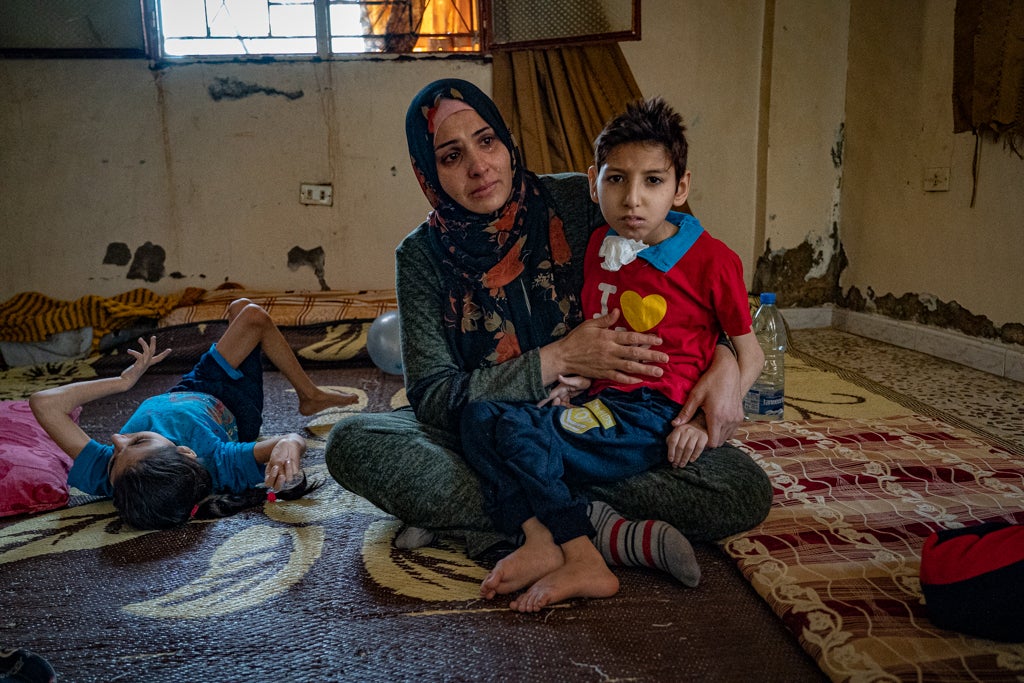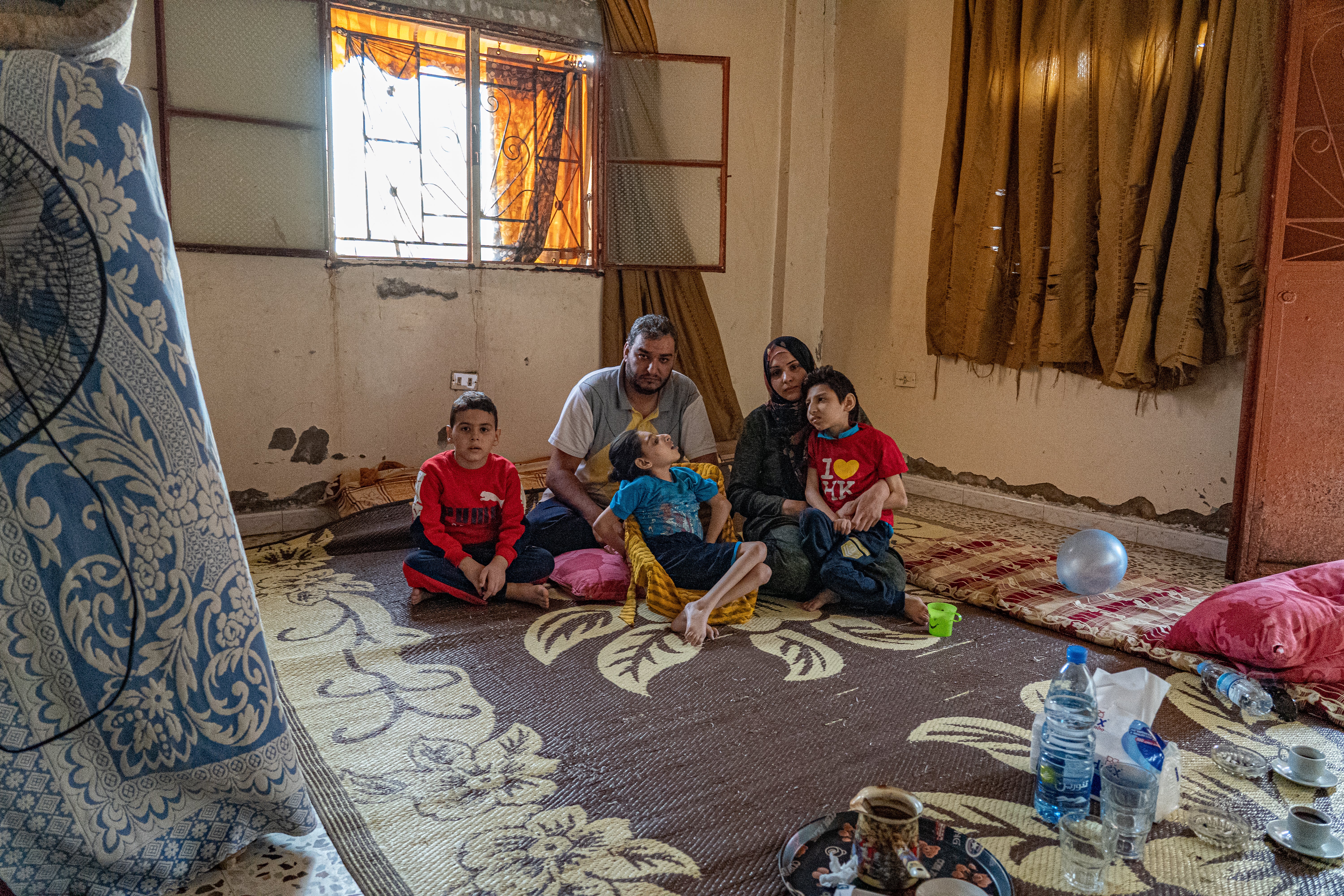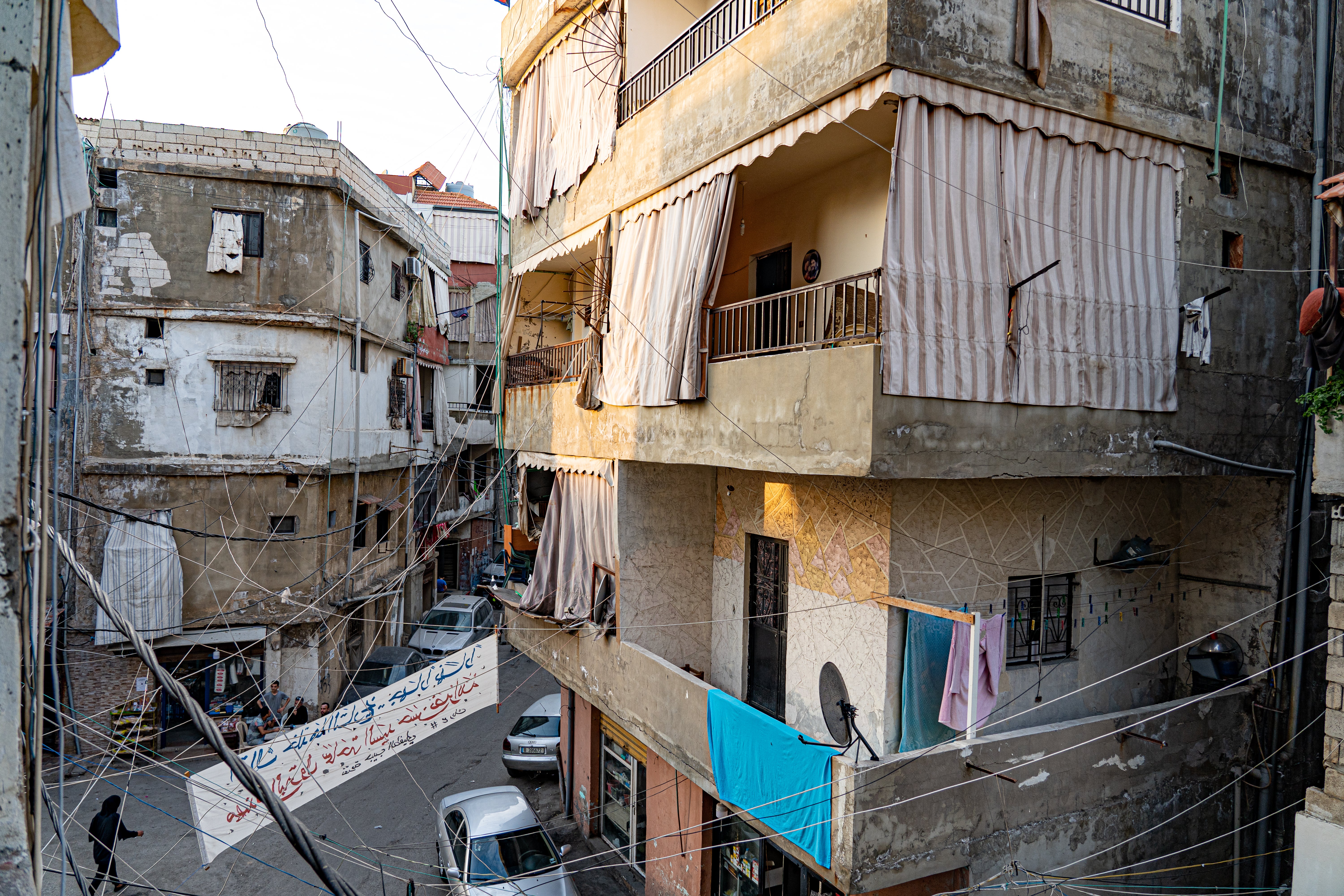‘An absolute scandal’: The Syrian teenager who died waiting to be resettled in Britain
Firas, 13, who had cerebral palsy, died in February, four years after he and his family were promised a place in the UK under a resettlement programme, reports Bel Trew


Your support helps us to tell the story
From reproductive rights to climate change to Big Tech, The Independent is on the ground when the story is developing. Whether it's investigating the financials of Elon Musk's pro-Trump PAC or producing our latest documentary, 'The A Word', which shines a light on the American women fighting for reproductive rights, we know how important it is to parse out the facts from the messaging.
At such a critical moment in US history, we need reporters on the ground. Your donation allows us to keep sending journalists to speak to both sides of the story.
The Independent is trusted by Americans across the entire political spectrum. And unlike many other quality news outlets, we choose not to lock Americans out of our reporting and analysis with paywalls. We believe quality journalism should be available to everyone, paid for by those who can afford it.
Your support makes all the difference.Vulnerable refugees, including disabled children, who have been approved for resettlement in the United Kingdom from the Middle East, are dying during the years-long wait to be transferred, it can be revealed.
According to the United Nations, more than 2,000 refugees accepted by the UK’s resettlement programme still await transfer, in some cases years after being accepted.
The Independent now knows of several cases in which those waiting have died, or are at risk of death, because the delays are so long, and because the conditions where they are forced to live are dire.
Most recently, in February, a severely disabled 13-year-old Syrian refugee, Firas, who was promised resettlement in 2018, died in Beirut after his family had warned that they were not able to afford his medical care, food or winter clothes, or electricity to warm their home.
The Independent had repeatedly raised his case, among others, with the Home Office, as had a British law firm representing the refugees. The Home Office has so far declined to comment.
The news of Firas’s death, which MPs have called “an absolute scandal”, comes as the UK is facing mounting criticism over its move to enshrine in law new controversial asylum and immigration reforms, which have been slammed by the UN and human rights groups as “racist” and at odds with the Refugee Convention.
Under the provisions, the government will be able to “offshore” asylum seekers via a deal already struck with the central African country of Rwanda. The law will also criminalise anyone using an irregular route, such as crossing the Channel in a small boat, to get to the UK.
Home secretary Priti Patel has defended her Nationality and Borders Bill, telling the House of Commons last week that the government had sought to make the changes in order to stop people-smuggling, with the aim of “creating safe and legal routes for women, children and families”.
But chronic delays in the establishment of these “safe and legal routes” have left the world’s most vulnerable people fending for themselves, with sometimes fatal consequences.
“There is no limit to my despair. I am very disappointed after everything that has happened to me and my family. When Firas died, I lost a piece of my heart,” Omar, Firas’s father, tells The Independent in Beirut.
The family was approved for resettlement in 2018, but four years later still await news of their transfer, despite the fact that Firas has died during the process.
According to medical reports shown to The Independent on 10 February 2022, Firas, who had cerebral palsy, was admitted to hospital in Beirut with a swelling in his right cheek that developed into respiratory distress and later pneumonia. He eventually died less than two weeks later.
Omar believes Firas died because of the poor conditions he was forced to live in.
The family fled the ferocious bombardment of Syria for Lebanon, a country in the grip of one of the worst economic crises in modern history. Since 2020, Lebanon’s currency has lost more than 95 per cent of its value, sending food prices soaring. The cash-strapped government has been forced to lift hefty subsidies, meaning the cost of medicines has increased fivefold and most supplies are scarce. Households only have two hours of power a day.
It means Omar, who cannot find work, was unable to pay for Firas’s full medical treatment or adequate food. He says the family are currently surviving on a sack of potatoes as they have run out of other food to eat, and they are about to be evicted as they cannot afford the rent.
He also frets about the fate of his daughter Batoul, 12, who also suffers from cerebral palsy and needs medicine Omar cannot fully afford.
“I cannot find the medicine and I am also without work,” he says with desperation. “I don’t understand why there are so many delays – why there is procrastination over a family that can’t even find basic sustenance day to day?
“Please, my family and I are tired of waiting. We are so tired of waiting, Batoul needs treatment and care quickly, please.”
It is understood that accommodation was finally found in the UK for Omar’s family, but only after Firas had died. And still no date has been set for their transfer.
The Independent was also informed of other cases in which members of families who had been promised resettlement had died while waiting. Sara, 36, a Syrian Kurdish woman, has been waiting since 2020 to be resettled and is at risk of suicide.

Sara is disabled, suffers from chronic pain, and requires a wheelchair, which she is unable to get in Iraqi Kurdistan where she lives and where medical care is inadequate.
“I cannot walk properly. I need a wheelchair, which of course I do not have. I stay in bed most of the time; I barely move,” she says. “I cannot take it any more. I have no hope, no future, no work. My life depends on leaving for Britain. That’s how desperate I feel.”
Hannah Baynes, of Duncan Lewis Solicitors, who are representing both Omar and Sara, says their cases are not unique. This year Duncan Lewis have represented 27 Syrian families based in Lebanon, northern Iraq, Jordan and Turkey, who are awaiting transfer since having their resettlement confirmed years ago.
Ms Baynes says she is aware of other refugees dying while waiting for transfer, and fears that this is just “the tip of the iceberg”. She is unable to give specific details about the other cases for legal reasons.
The law firm is worried that the urgency of Omar’s situation has not been fully appreciated by the Home Office, and that Sara is desperate.
“We have become increasingly concerned regarding Sara’s risk of suicide, as her mental health deteriorates and she becomes more hopeless during the period of uncertainty regarding her resettlement to the UK,” Ms Baynes says.
The Independent has repeatedly reached out to the Home Office for comment on delays in resettlement cases, and has specifically raised the cases of Omar, Firas and Sara, including informing the Home Office that Firas had died.
Home Office officials have declined to comment, saying they do not talk about individual cases, but admitted that it can “take time to find suitable placement to meet the specific needs of vulnerable families”.
A spokesperson insisted that the UK “has a long history of supporting refugees in need of protection”.
“Since 2015, we have resettled more than 26,000 refugees through safe and legal routes, direct from regions of conflict and instability – more than any other European country,” the spokesperson added. “Once a family is accepted by a local authority, arrangements are made for their arrival in the UK as soon as practicable.
“Our New Plan for Immigration will fix the broken asylum system so that it is fair but firm, helping those in genuine need through safe and legal routes while stopping those who abuse the system.”
The new plan has, however, sparked uproar among MPs, who are increasingly alarmed.
Scottish National Party MP Stuart C McDonald told The Independent it is “an absolute scandal” that Omar’s family was still awaiting transfer even after Firas had died.
“It shows just how far removed from reality it is that a ‘safe and legal route’ is at the heart of the new plan for migration, if Priti Patel can’t deliver on the handful of places that have been available until now,” he adds.
Conservative MP David Simmonds called Firas’s case “shocking”, saying: “The Home Office needs to be in a position to help these people as soon as possible.”
The UK’s Vulnerable Persons Resettlement Scheme, which ended in March last year, committed to welcoming 20,000 refugees from Syria between 2015 and 2020. It was replaced last February by the UK Resettlement Scheme (UKRS), which originally pledged to resettle 5,000 refugees from countries such as Syria, Afghanistan and Sudan in its first year.
But the Home Office scrapped the target and said the numbers would instead be “kept under review”, causing concern among UK charities, MPs and the United Nations refugee agency (UNHCR). Government statistics show that just 1,131 people were granted protection through resettlement schemes between March and December 2021.
The government has also since voted down an amendment to the bill, tabled by the House of Lords, to introduce a global resettlement scheme that would commit to bringing 10,000 people to safety each year. It also rejected a watered-down version of the amendment to commit to a numerical target on resettlement in the House of Commons this month.
There are now growing fears over the proposed changes contained in Ms Patel’s new Nationality and Borders Bill, with MPs telling The Independent they are concerned refugees who are offshored to Rwanda will not be given adequate protection.
Filippo Grandi, the head of the UNHCR, said last week that the new bill “will dramatically weaken refugee protection” and has the potential to deny refugees their right to seek asylum in the UK.
Amnesty called the move racist, and said it “ripped up the Refugee Convention” meaning the UK has “shamefully abandoned the responsibility it owes to refugees”.
Mr McDonald told The Independent the new bill severely diminishes family reunion rights, and called the Rwanda plan “jaw-droppingly awful”. “It totally flouts the Refugee Convention. It will cost an eye-watering amount of money if it works, and will undermine international systems of refugee protection,” he said.
Mr Simmonds, who said he “supports in principle” the legislation needed to stop people-smuggling, said the government had not allocated enough resources to make it work.
“The government needs to invest significantly in casework capacity. It takes far too long,” he said. “If we want to demonstrate robust management of our borders then we need to be able to make decisions, and at the moment too often that takes an unconscionably long time.”

Solicitors Duncan Lewis say the problem is that the resettlement system is plagued by delays and bureaucracy, and is heavily dependent on local authorities to source and provide accommodation and support for families coming to the UK.
“These are the ‘safe, legal routes’ which the Nationality and Borders Bill wants to champion,” Ms Baynes adds. “However, the death of Firas has emphasised that they are far from safe, but rather the unreasonable delays are leaving vulnerable refugees in precarious and unsustainable positions.”



Join our commenting forum
Join thought-provoking conversations, follow other Independent readers and see their replies
Comments